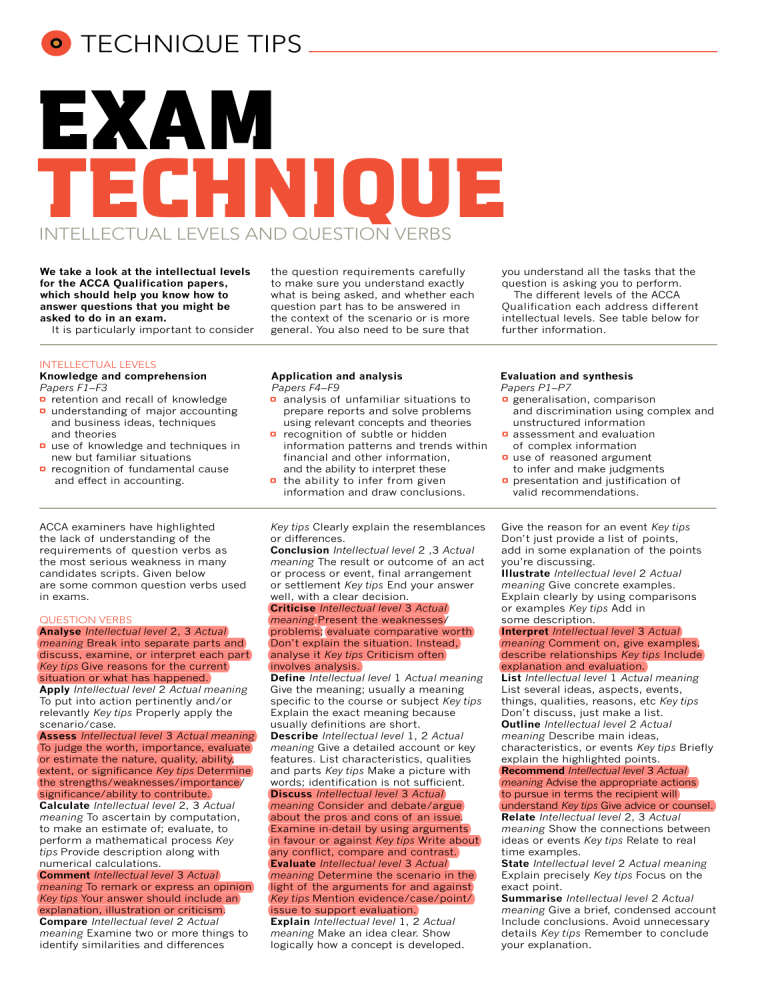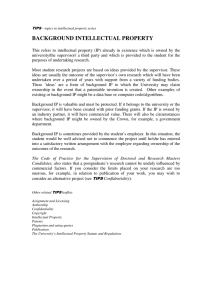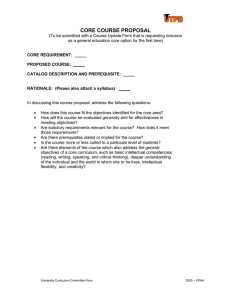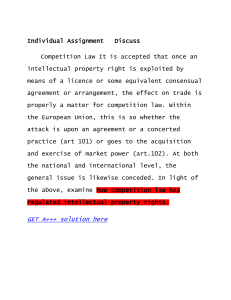
technique tips exam technique intellectual levels and question verbs We take a look at the intellectual levels for the ACCA Qualification papers, which should help you know how to answer questions that you might be asked to do in an exam. It is particularly important to consider the question requirements carefully to make sure you understand exactly what is being asked, and whether each question part has to be answered in the context of the scenario or is more general. You also need to be sure that you understand all the tasks that the question is asking you to perform. The different levels of the ACCA Qualification each address different intellectual levels. See table below for further information. intellectual levels Knowledge and comprehension Application and analysis Evaluation and synthesis Papers F1–F3 Papers F4–F9 Papers P1–P7 ¤ retention and recall of knowledge ¤ analysis of unfamiliar situations to ¤ generalisation, comparison ¤ understanding of major accounting prepare reports and solve problems and discrimination using complex and and business ideas, techniques using relevant concepts and theories unstructured information and theories ¤ recognition of subtle or hidden ¤ assessment and evaluation ¤ use of knowledge and techniques in information patterns and trends within of complex information new but familiar situations financial and other information, ¤ use of reasoned argument ¤ recognition of fundamental cause and the ability to interpret these to infer and make judgments and effect in accounting. ¤ the ability to infer from given ¤ presentation and justification of information and draw conclusions. valid recommendations. ACCA examiners have highlighted the lack of understanding of the requirements of question verbs as the most serious weakness in many candidates scripts. Given below are some common question verbs used in exams. question verbs Analyse Intellectual level 2, 3 Actual meaning Break into separate parts and discuss, examine, or interpret each part Key tips Give reasons for the current situation or what has happened. Apply Intellectual level 2 Actual meaning To put into action pertinently and/or relevantly Key tips Properly apply the scenario/case. Assess Intellectual level 3 Actual meaning To judge the worth, importance, evaluate or estimate the nature, quality, ability, extent, or significance Key tips Determine the strengths/weaknesses/importance/ significance/ability to contribute. Calculate Intellectual level 2, 3 Actual meaning To ascertain by computation, to make an estimate of; evaluate, to perform a mathematical process Key tips Provide description along with numerical calculations. Comment Intellectual level 3 Actual meaning To remark or express an opinion Key tips Your answer should include an explanation, illustration or criticism. Compare Intellectual level 2 Actual meaning Examine two or more things to identify similarities and differences Key tips Clearly explain the resemblances or differences. Conclusion Intellectual level 2 ,3 Actual meaning The result or outcome of an act or process or event, final arrangement or settlement Key tips End your answer well, with a clear decision. Criticise Intellectual level 3 Actual meaning Present the weaknesses/ problems; evaluate comparative worth Don’t explain the situation. Instead, analyse it Key tips Criticism often involves analysis. Define Intellectual level 1 Actual meaning Give the meaning; usually a meaning specific to the course or subject Key tips Explain the exact meaning because usually definitions are short. Describe Intellectual level 1, 2 Actual meaning Give a detailed account or key features. List characteristics, qualities and parts Key tips Make a picture with words; identification is not sufficient. Discuss Intellectual level 3 Actual meaning Consider and debate/argue about the pros and cons of an issue. Examine in-detail by using arguments in favour or against Key tips Write about any conflict, compare and contrast. Evaluate Intellectual level 3 Actual meaning Determine the scenario in the light of the arguments for and against Key tips Mention evidence/case/point/ issue to support evaluation. Explain Intellectual level 1, 2 Actual meaning Make an idea clear. Show logically how a concept is developed. Give the reason for an event Key tips Don’t just provide a list of points, add in some explanation of the points you’re discussing. Illustrate Intellectual level 2 Actual meaning Give concrete examples. Explain clearly by using comparisons or examples Key tips Add in some description. Interpret Intellectual level 3 Actual meaning Comment on, give examples, describe relationships Key tips Include explanation and evaluation. List Intellectual level 1 Actual meaning List several ideas, aspects, events, things, qualities, reasons, etc Key tips Don’t discuss, just make a list. Outline Intellectual level 2 Actual meaning Describe main ideas, characteristics, or events Key tips Briefly explain the highlighted points. Recommend Intellectual level 3 Actual meaning Advise the appropriate actions to pursue in terms the recipient will understand Key tips Give advice or counsel. Relate Intellectual level 2, 3 Actual meaning Show the connections between ideas or events Key tips Relate to real time examples. State Intellectual level 2 Actual meaning Explain precisely Key tips Focus on the exact point. Summarise Intellectual level 2 Actual meaning Give a brief, condensed account Include conclusions. Avoid unnecessary details Key tips Remember to conclude your explanation.





